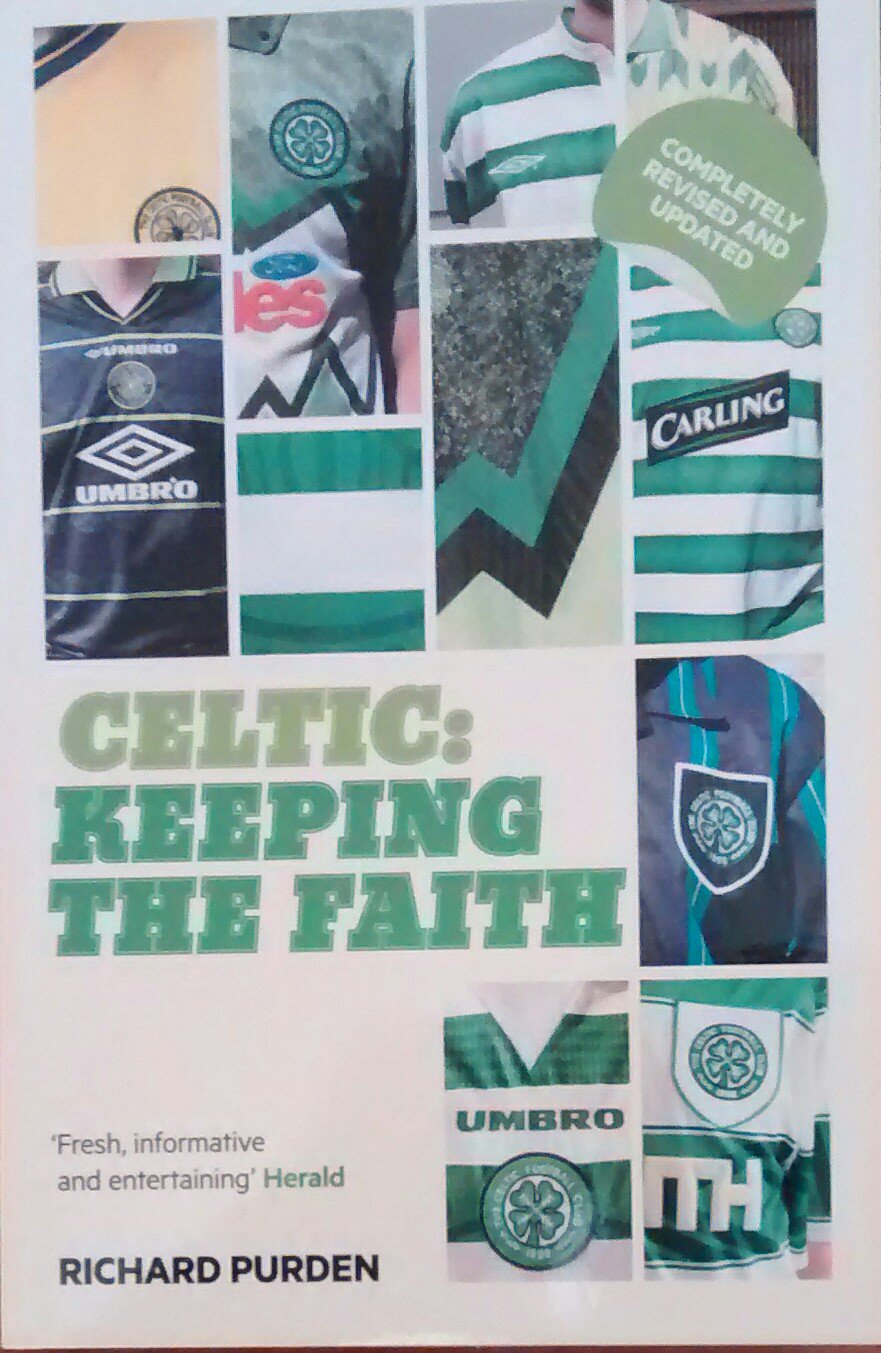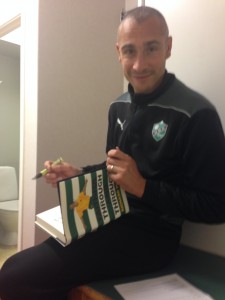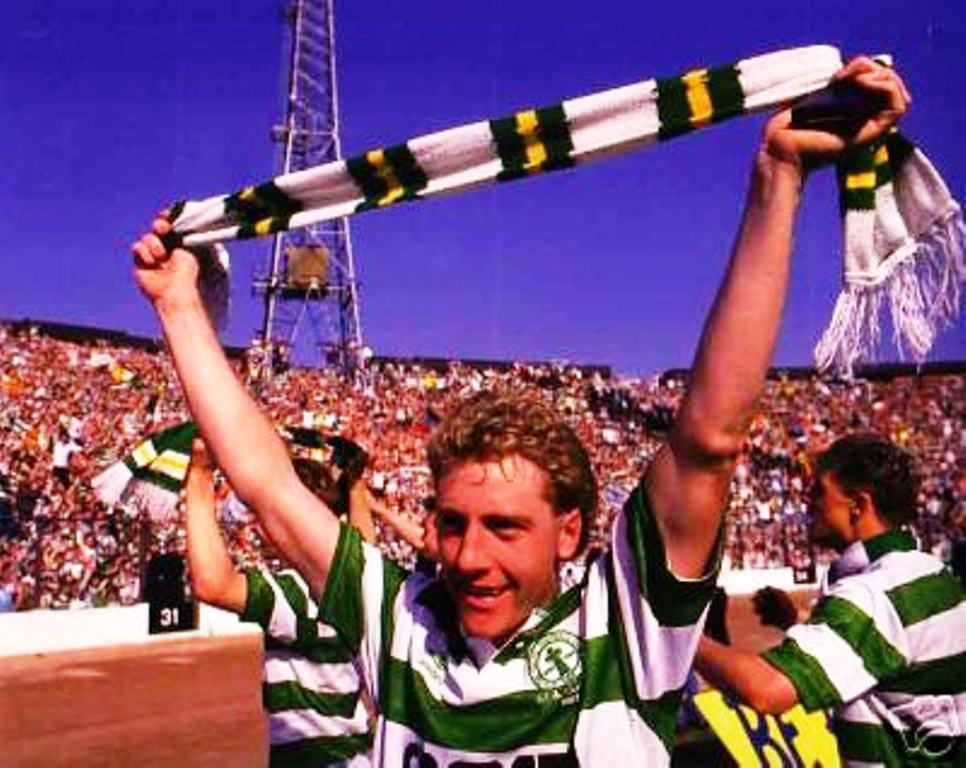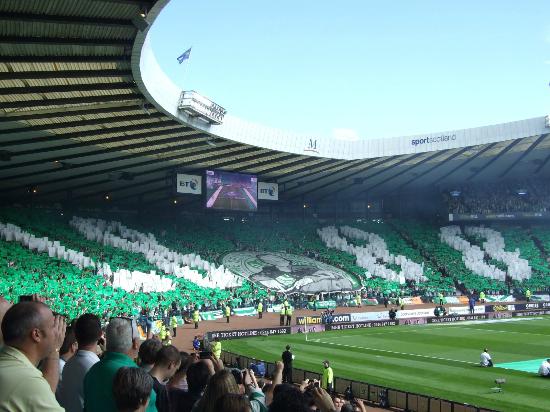For those of us who were reared in inner city Glasgow and came from a Catholic family background there was a sense of inevitability that we would grow up to support Celtic.
I am always amazed and impressed when I hear of people who follow Celtic in various parts of the world and the reasons why they choose to do so. This book details the stories of many Celtic fans, some with a high public profile and others who you will not have heard of. But they all have their very own Celtic story to tell and that’s what makes this book a fascinating read.
Author Richard Purden has clearly been very fortunate to get access to such powerful Celtic personalities as Martin O’Neill and Henrik Larsson. O’Neill, we read, was almost destined to be Celtic manger and can recall old Celtic greats such as John McPhail and Bertie Peacock from his earliest days in Kilrea, Northern Ireland. Describing watching Celtic win the European Cup in 1967 as a schoolboy you become aware that this was another ‘JFK’ moment in history for many people. Anyone who is old enough can still recall vividly everything they did on that day. Martin laments the passing of Rangers and feels that Scottish football isn’t the same without them in the top league. Perhaps Martin has been away for too long and he clearly fails to appreciate the depth of feeling in this country, not only from Celtic fans, towards Rangers and the way they scammed the game in Scotland.
As for Larsson, he is unbelievably modest and also remarkably concise and erudite when he describes John Barnes: ‘I don’t think he fully understood what it meant to be manager of Celtic…’
On a personal level I was tickled with the chapter that focuses on Pat Stanton. A Hibs captain and Easter Road legend Pat may only have played one full season for the Celts but he left a lasting impression on receptive schoolboys such as myself. As much as I admired Pat in the hoops I was almost sorrowful when I read that one of Pat’s sons is a devoted Celtic fan. Pat provides a great insight into the personality of Jock Stein both from his time at Parkhead and Easter Road.
The author is not afraid to delve into subjects which are of interest to Celtic fans but are often topics of contention. Religion, politics and music all weigh heavily in this book and most of us realise that these are three matters which everyone will have varying opinions on. The matter of Scottish independence is both lauded and lambasted by different interviewees.
The beauty of this book is the strength of the characters who are interviewed. From Jewish Celtic fan, Benny Krieger, who gives a humbling description of his conversion to the Celtic cause to Tony Weldon, a veteran Celt from Croy, who laments the modern sectarian feeling in the west of Scotland: ‘For our generation it wasn’t about if you supported or played for Celtic or even whether you had any talent; it was about a person’s character.’ Weldon also makes the comment that some may find uncomfortable to read in that he stopped attending Celtic matches during Gordon Strachan’s reign as manager as the quality of football had declined dramatically.
Celtic’s Irish links are examined closely and you discover a great deal about Celtic’s connections with the Belfast side Cliftonville. Their chairman Gerry Lawlor is a remarkable man and he warns Celtic can no longer take their large support in Northern Ireland for granted as the medium of live television now brings the powerful beast of the EPL into almost every home. The Celtic board would do well to heed his words and it’s wonderful to think that after this book was in print Celtic had the honour of going to Solitude on Champions League duty which would have pleased Lawlor greatly.
Tony Banks, a Dundonian and ex Para who is a Falklands war veteran is another fascinating character who states that with his background, ‘I’m probably the most unlikely Celtic fan you could get.’ Carole McQueen, a long standing Celtic fan and now residing in Boston recalls how unusual it was in the 1960’s for young girls to attend football matches and gives a great description of that dramatic night against Vojvodina in 1967 when Billy McNeill scored that dramatic late goal.
The only reservation I had reading this book was the section devoted to Shane McGowan. It’s not a criticism it’s just that I was never a Pogues fan although I always felt I should have been. I just never got to grips with them musically and I’m probably the only guy living who dislikes Fairytale in New York. However I do appreciate that others see the bold Shane as a modern day prophet and if so they will enjoy this section tremendously.
This is a well written, thoroughly researched book which goes into tremendous detail. The chapters all appear to be named after popular songs which is a nice touch and Richard is obviously a big music lover which explains why so many Celtic supporting musicians are interviewed throughout.
What becomes obvious in the book is that even though there are many Celtic fans from contrasting backgrounds they all profess a deep admiration and respect for Celtic’s Irish history and charitable roots. There are many references to Brother Walfrid and what his original aims where for Celtic.
The good Marist brother would be proud to read Faithful through and through as it affirms that Celtic are certainly the inclusive club that he had hoped for in 1888 and we are privileged to have a diverse fan base which is so rich in personality.
This is a book written about the fans by a fan and it is highly recommended.






